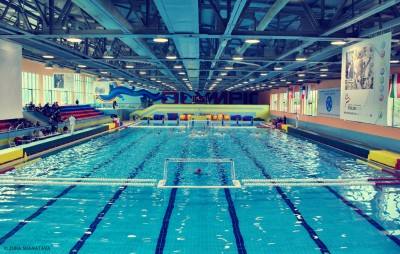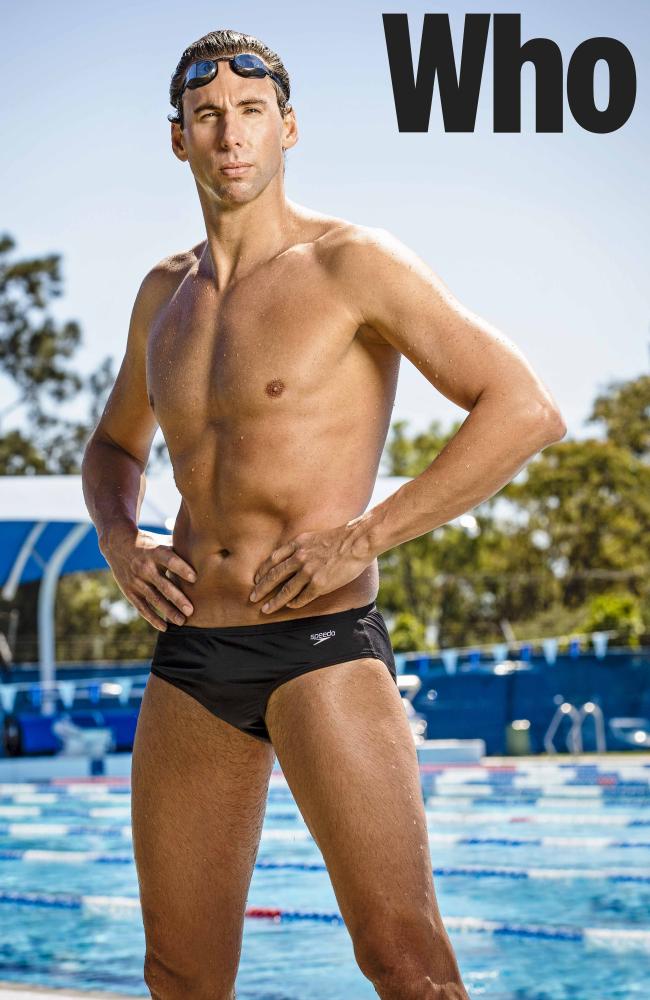Troubled Waters and the Sporting Dilemma in Australia. The Legend of Grant Hackett

“New safety briefing tells passengers to familiarise themselves with their nearest Grant Hackett, remembering it may be behind them.” The Shovel, Apr. 18, 2016
The sporting hero suffers a disservice, notably in countries such as Australia. Feted, lauded and congratulated in their bloom, figures of Olympian stature and record such as Grant Hackett are deemed the immortals. Their fragility is concealed, packaged in the muscle and fitness that is peak performance and victory. When they snap on the willow of reality, fragile as ever, mortality creeps in with mocking menace. Fans and sponsors beat a hasty retreat. The authorities move in.
 Sporting immortality distorts and mangles. For one, it is finite, a touch of puffery that eventually goes its way. In time, the sports figure descends from Olympus, often in heavy and violent fashion. The fans of adoration will find some other object of their interest.
Sporting immortality distorts and mangles. For one, it is finite, a touch of puffery that eventually goes its way. In time, the sports figure descends from Olympus, often in heavy and violent fashion. The fans of adoration will find some other object of their interest.
Many figures find such transition to a life after sport difficult, notably in societies where sports personalities assume cerebral and charismatic dimension. Peter Brock was always the driver that made Bathurst his own – but in the final analysis, he remained a driver who did not have to deal with the consequences of a life beyond driving. The car, the culture, and the engine, all seemed to purr with their own anointing qualities.
In Hackett’s case, it was, till recently, the pool, that great body of water that crowned him. Stones, as Ovid pointed out, are the hollowed victims of water. The swimmer, however, mimicking the fish of grace, works with it, achieving feats of speed. With Hackett, resilience over distance mattered. Between 1997 and 2006, he remained the undefeated distance freestyler over 1,500 metres. (He won gold at both the 2000 and 2004 Olympics in that event.)
Sports writer Robert Craddock noted Hackett’s “pristine” reputation, one that made banking executives and public relations gurus salivate. “The man with the toothpaste smile, pop singer wife and delivery so smooth he was hired as a TV broadcaster, Hackett’s image was whiter than a polar bear in a snowstorm.”[1]
Finding it difficult to stay out of the pool competitively, Hackett ventured a return. Despite engendering much support at the national titles, the effort failed. Having not qualified for the Australian team for the Rio summer games, Hackett encountered an assortment of demons. A Virgin Australia business-class passenger alleged on Sunday that Hackett had groped him from behind, targeting of his nipples with purpose. “There was no altercation – I was sexually assaulted by that man.”[2]
On reaching Melbourne’s Tullamarine airport, Hackett was photographed being taken from the plane by the Australian Federal Police, saddled to a wheelchair. Prior to boarding the flight, an observation was made that Hackett might have been under the influence, in the gloriously precise wording of the Herald Sun, “of something”. Channel Seven claimed to cite police sources noting Hackett’s “extended period” in the toilet mid-flight, from which he “emerged aggressive and agitated”.[3]
Such behaviour should be the rich bread and butter of psychologist and social worker. But while doctors, trainers, physiotherapists and medics form brigades in the employ of state in dealing with sporting characters in the broadly physical sense, making sure the bodily machine functions and recovers from injury, the issue of mental health remains a fringe worthy matter.
Adjunct Associate Professor Patsy Tremayne, a sports psychologist at Western Sydney University’s School of Social Science and Psychology has made the obvious point that sports figures “don’t like to talk about mental health. It is almost a sign of weakness to mention it.”[4] The external features of the body trump talk about mental wellbeing. Look good, perform, and the rest will follow.
The garden of Australian sport is littered with the broken roses of mental anguish and spiritual strain. Hackett can count himself one of many swimmers who can add their names to a growing club of illustrious and wounded souls, one including Ian Thorpe, Libby Trickett and Leisel Jones.
Thorpe has been brutally frank about his struggle with depression, having been admitted to a rehabilitation facility in 2014 “after being found disoriented on a Sydney street” (ABC News, Feb 18). He was another sporting casualty, having failed to find his post-swimming legs in television, jewellery design or university courses.[5]
Jones, another medal vulture for Australian swimming, contemplated suicide on the bathroom floor of a Spanish hotel in 2011. Brimming with depression at stages of her career, she was equipped with a box of sleeping tablets and a plan for taking her own life. Her then coach frustrated the venture.[6]
Yet sporting writers such as Craddock persist in the illusion that bad boys and girls of the pool and field eventually calm down and become distinguished elders. He observes, erroneously, how sports figures “often lead controversial playing careers then melt into mellow, low-key retirements.” Far from “bucking the trend”, Hackett is conforming to it.
Dr. Binoy Kampmark was a Commonwealth Scholar at Selwyn College, Cambridge. He lectures at RMIT University, Melbourne. Email: [email protected]
Notes:
[1] http://www.heraldsun.com.au/news/grant-hackett-plane-scandal-passenger-accuses-swimmer-of-groping-his-chest/news-story/9a6c3a40d277912d9b7ca3a824d70086
[2] http://www.heraldsun.com.au/news/grant-hackett-plane-scandal-passenger-accuses-swimmer-of-groping-his-chest/news-story/9a6c3a40d277912d9b7ca3a824d70086
[3] http://www.smh.com.au/sport/swimming/grant-hackett-arrested-after-altercation-on-plane-reports-20160417-go8a0w.html
[4] http://www.huffingtonpost.com.au/2015/10/10/mental-health-sport_n_8266914.htm
[5] http://www.abc.net.au/news/2016-02-18/ian-thorpe-reveals-mental-health-issues-a-problem-since-teens/7180702
[6] http://www.abc.net.au/news/2015-10-06/sherden-drum-interview:-leisel-jones-reveals-depression/6829764

